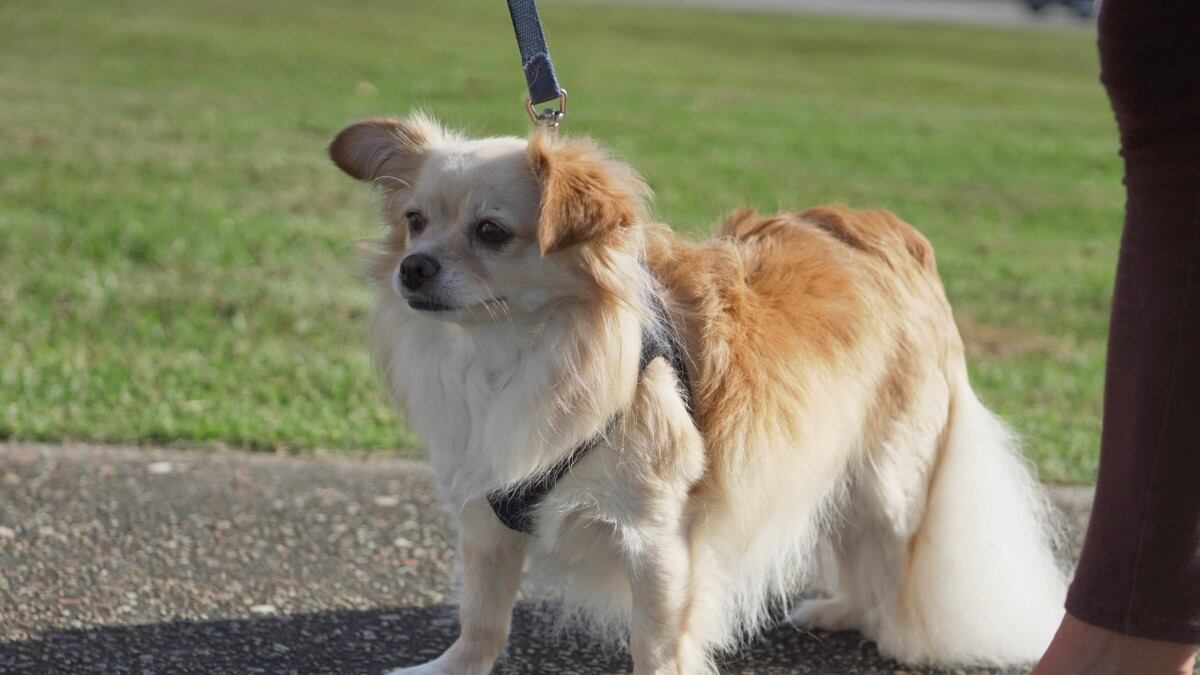The Marine Corps is working toward implementing a policy that could allow Marines to get reimbursed for thousands of dollars in pet relocation costs, but the policy won’t come in time for the summer moving season, according to the service.
The military services will be authorized to cover up to $4,000 of a service member’s expenses associated with moving a pet during a permanent change of station to or from a place outside of the continental United States, thanks to a provision in the 2023 National Defense Authorization Act. Troops moving stations within the continental United States could get up to $550 for their pet relocations.
The Marine Corps expects Marines won’t get the entitlement until Jan. 1, 2024, “due to the significant unbudgeted costs of this new authority,” according to a Marine administrative message Monday.
Summertime is peak season for permanent change of station moves.
Before it’s official policy, the entitlement has to go through Defense Department approvals, according to the message.
The Marine Corps does plan to pursue approval of the entitlement, Maj. Jim Stenger, a Marine spokesman, confirmed to Marine Corps Times Tuesday.
Marine vet Liz Hensel, CEO and founder of Leave No Paws Behind USA, which advocated for the military to cover these expenses, praised the Marine Corps for being the first service to release a statement about its plans for the entitlement.
“It’s a huge step in the right direction,” said Hensel, who said she is a staff sergeant in the Marine Reserve and married to a Marine. “It’s a little disappointing to hear that it probably won’t go into effect until January 2024. But they were very realistic on that timeline. These things take time.”
Troops won’t get reimbursed retroactively for pet-transportation expenses that occur before the entitlement is official policy, Stenger said.
It can take six months to prepare to move a pet overseas, an April Marine administrative message advises Marines and their families. Before bringing a pet into Japan — the overseas location with the largest concentration of Marines — pet owners have to secure a microchip, vaccines, a rabies blood test (at least 180 days before arrival) and a health certificate, according to a guide for troops relocating to Okinawa.
Then there’s the matter of securing a spot on a government-contracted or commercial plane for a pet.
Contracted flights through Air Mobility Command offer a discounted rate, ranging from $125 to $375, to transport pets, but flights have few spaces for pets, according to the Marine message in April. Marines are responsible for providing kennels on those flights.
It can cost thousands in some cases to move a pet overseas using a private pet-shipping company.
Amid the rising costs of transporting pets, some military relief societies have started offering loans to service members who are moving duty stations, Military Times previously reported.
Hensel started advocating for the military to cover pet relocation expenses after her husband, a Marine, received orders to move from California to Japan.
As Hensel researched how she would transport her German Shepherd, Prince, she found few resources and conflicting information related to relocating pets as part of a permanent change of station move. And she discovered that some military families were spending thousands to transport their pets overseas.
She started lobbying on the Hill for coverage of expenses associated with relocating pets and, she said, ultimately found success with Sen. Cory Booker, D-New Jersey, who introduced the reimbursement provision into the defense authorization bill.
At duty stations in the Pacific, Hensel said, deployments are especially frequent. Caring for Prince brought consistency and routine for her and her kids while her husband was away.
“He kind of kept us glued to the present and not thinking of how much we missed Dad,” Hensel said, adding, “Across the board, to anyone who served, be it Mom or Dad, that pet is so important for the family dynamic.”
Irene Loewenson is a staff reporter for Marine Corps Times. She joined Military Times as an editorial fellow in August 2022. She is a graduate of Williams College, where she was the editor-in-chief of the student newspaper.





